Policies » Section J: Students » JLCF: Wellness Policy
Policy Date: 01/10/2023
Download Policy NowASD: JLCF
AUBURN SCHOOL DISTRICT
WELLNESS
The School Board recognizes the importance of proper nutrition and developmentally appropriate physical activity as health and student success are interrelated. It is, therefore, the goal of the Board that the learning environment positively influences a student’s understanding, beliefs, and habits as they relate to good nutrition and physical activity.
Wellness Committee
The Principal or designee will establish a Wellness Committee that will periodically assess the nutrition and physical activity environment throughout the District. This group will assess progress on the current goal targets, recommend any new goal targets and identify strategies for achieving them. The Wellness Committee may consist of school staff, parents and students, as well as community members with wellness related expertise. The purpose of the Wellness Committee is to provide content area expertise and community input to the District. The Principal will monitor the school’s compliance with the policy.
Nutrition
The Auburn School District will follow the federal school meal and competitive food (Smart Snack) standards for all foods sold to students during the school day and encourages these same standards at school sponsored events outside of the school day. The nutrition standards are intended to model the practice of moderation as a component of a healthy lifestyle.
The school day, as defined by the National School Lunch Program, is as the period from the midnight before to 30 minutes after the end of the official school day.
Hydration
To promote hydration, free, safe, unflavored drinking water will be available to all students at every school throughout the school day, including mealtimes. Students shall be permitted to bring water bottles to school that:
1. Are made of material that is not easily breakable
2. Have lids to prevent spills
3. Are filled exclusively with water
Nutrition Education
The primary goal of nutrition education is to influence students’ eating behaviors. Nutrition education at all levels of the district’s curriculum shall include, but not be limited to, the following essential components:
1. Age-appropriate nutritional knowledge, including the benefits of healthy eating, essential nutrients, nutritional deficiencies, principles of healthy weight management, the use and misuse of dietary supplements, safe food preparation, handling and storage and cultural diversity related to food and eating.
2. Age-appropriate nutrition–related skills, including, but not limited to, planning a healthy meal, understanding and using food labels and critically evaluating nutrition information, misinformation and commercial food advertising.
3. How to assess one’s personal eating habits, set goals for improvement, and achieve those goals.
4. Consistent nutrition messages will be provided throughout school media, in the classroom and in the cafeteria, and to the home and community.
5. Nutrition concepts shall be integrated into health, science education, or in grade appropriate curriculum.
6. Staff providing nutrition education shall have appropriate training.
To accomplish these goals the District shall:
1. Create a safe, comfortable, and pleasing environment that allows ample time and space for eating meals.
2. Discourage the use of food items for instructional purposes unless they are essential to a curriculum area. This is especially the case for those food items that do not meet the nutritional standards for foods as outlined in this policy.
3. Ensure all school-based activities are consistent with Wellness Committee goals.
4. Encourage fundraising activities that promote physical activity.
5. Encourage staff to model healthy eating and physical activity as a valuable part of daily life.
Physical Activity
Children and adolescents should participate in at least 60 minutes of physical activity every day. In order to help families achieve this target, the District will provide a comprehensive physical activity program that encompasses quality physical education as the foundation and opportunities for physical activity during and after school. Physical activity can be integrated across curricula and made a part of Unified Arts, Science, Math, Social Studies, and Language Arts. Physical activity during the school day (including but not limited to recess, classroom physical activity breaks, or physical education) will not be withheld as punishment for any reason. This does not include participation on sports teams with specific academic requirements.
This policy and the current goals of the Wellness Committee will be posted on the school’s Wellness Page. Hard copies will be made available in the main office.
Legal Reference:
RSA 189:11-a, Food and Nutrition Programs, Section 204 of Public Law 108-265, Child Nutrition and WIC Reauthorization Act of 2004, Ed 306.04(a)(20), Wellness Ed 306.401, Health and Wellness Education Program
Adopted: June 13, 2006 (Auburn)
Revised: February 10, 2021, January 10, 2023
